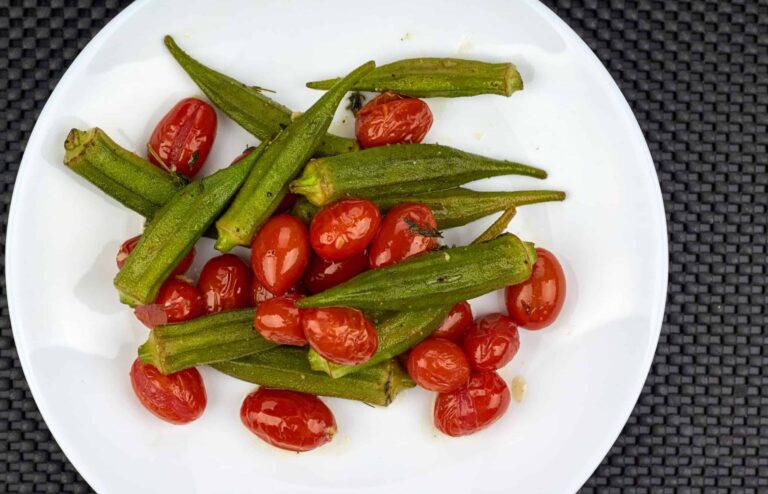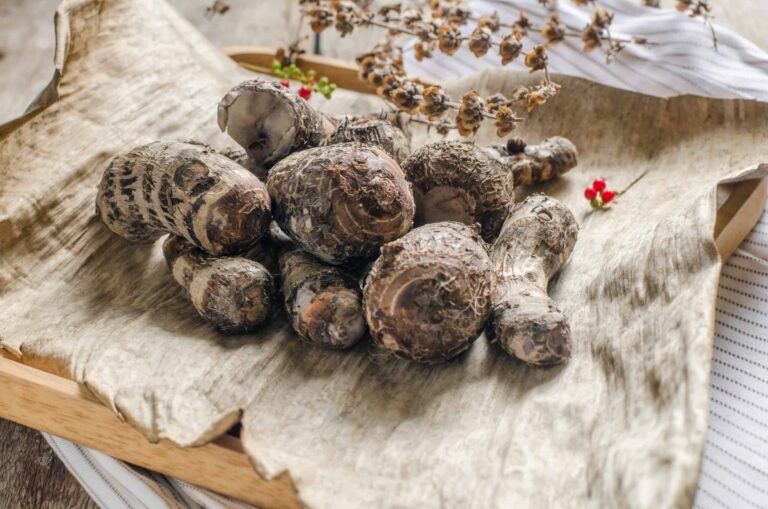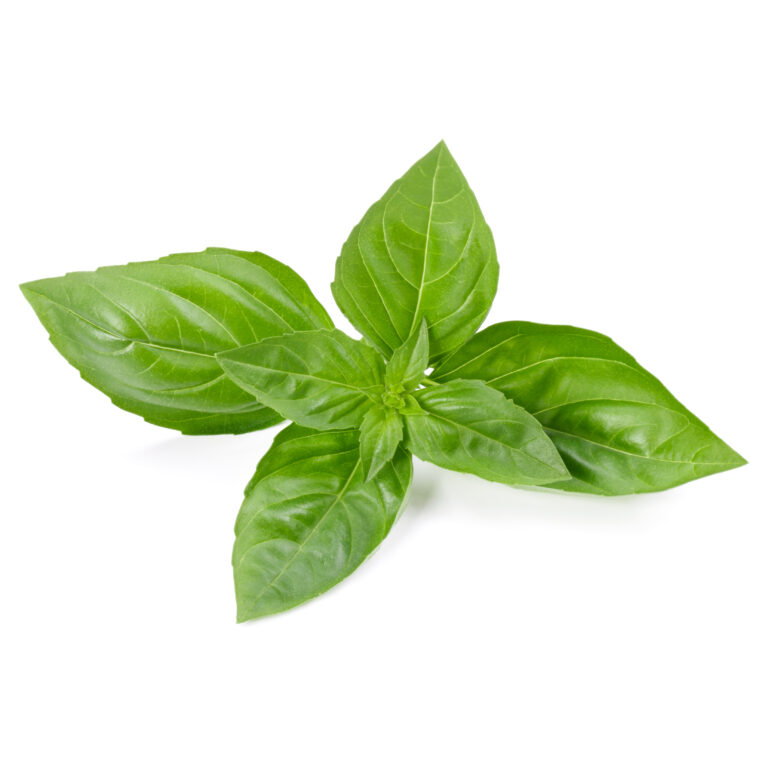Seven Ways to Cook and Serve Beets
Beets have a sweet, earthy taste. They can be eaten raw or cooked.
If you bake or roast beets in their skins, you can enjoy that flavor at its most intense.
You can boil beets then peel and slice them and serve with a little oil and lemon. If you have any leftovers, put them in the refrigerator to add to a salad the next day.
Favorite Beets Recipes
Baby Beets, Baby Carrots, and Sugar Snap Peas Salad
Baby Beets Steamed, Baked, Pickled
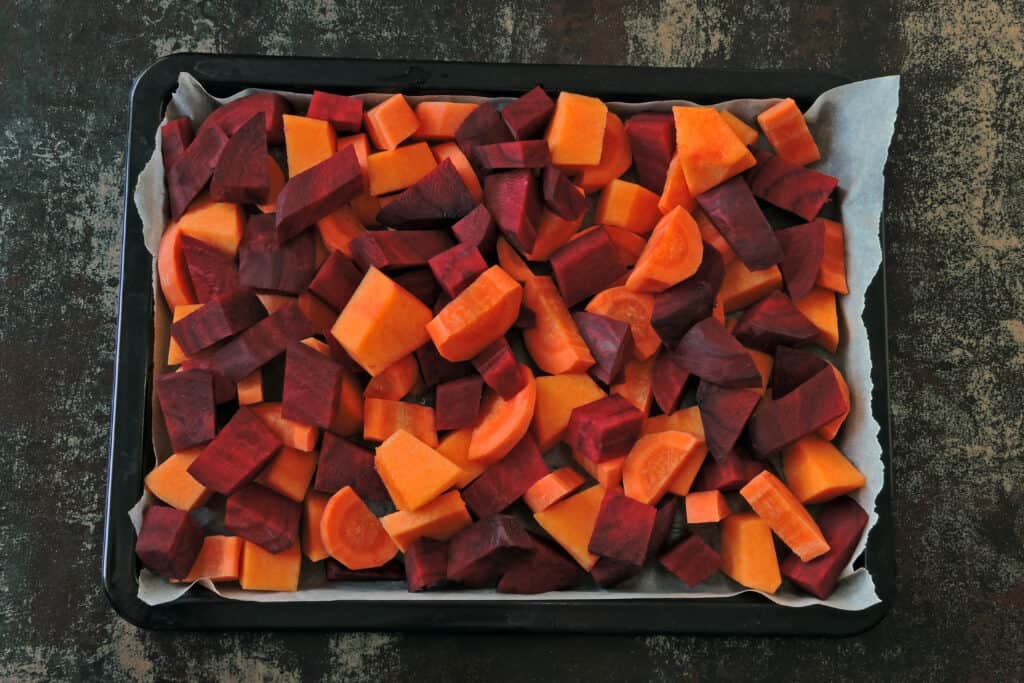
.
How to choose beets
- Select beets that are firm with smooth skins and are heavy for their size. Avoid beets that are soft, flabby, rough, or shriveled.
- Small and medium-sized beets will be tenderer than large beets. Beets that are large or long are likely to have a woody or fibrous texture.
- To ensure even cooking, choose beets that are similar in size.
- Beets should have about 2 inches (5 cm) of stem or greens attached. This will keep the root from “bleeding” or losing interior juices.
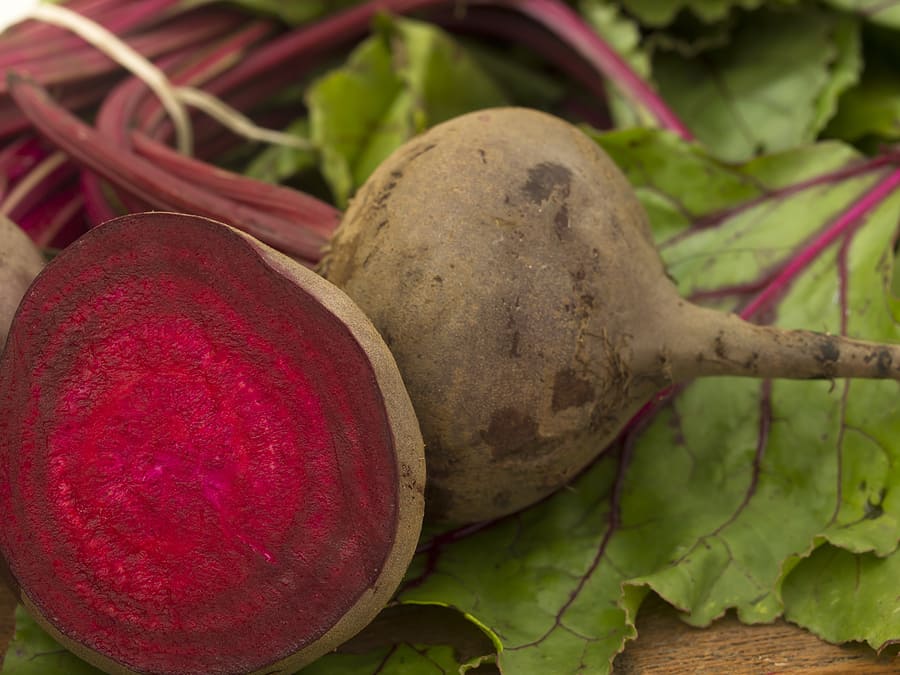
How to store beets
- Beets will keep in a plastic bag in the refrigerator for up to 3 weeks.
- Unwashed beet greens will keep for 3 to 5 days.
- Beets will also keep in moist sand or damp sawdust at 32° (0°C) for up to 3 months. Beets can also be canned or pickled and stored for up to a year.
How to prep beets
- Just before using, wash beets under running water to remove dirt or sand.
- Scrub beets delicately and be careful not to bruise them.
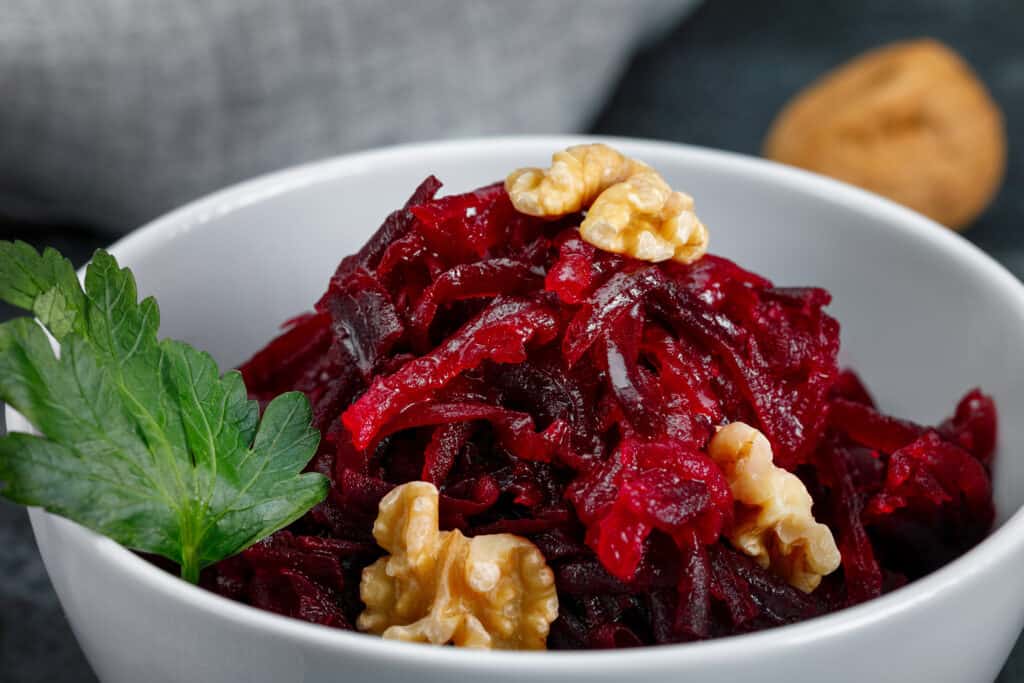
Serving uncooked beets
Serve raw beets in a salad if finely grated. Add beets at the end of the salad making so that they don’t stain other ingredients.
- Beets can be eaten raw or cooked.
- Raw beets add texture to salads. To serve beets raw, peel and then slice or grate them and season.
- Toss shredded raw beets with vinaigrette and chopped parsley.
- Serve shredded raw beets with shredded raw celeriac adding a dressing made with yogurt.
Preparing to cook beets
To prevent red beets from excessive “bleeding” during cooking, wait to peel them until after cooking. Before cooking simply trim off the tops about 1 inch above the roots and wash carefully with a vegetable brush.
- Cook beets whole without peeling or bruising.
- Never peel a beet before cooking or it will bleed.
- Cut off the stem an inch above the bulb and leave the roots on.
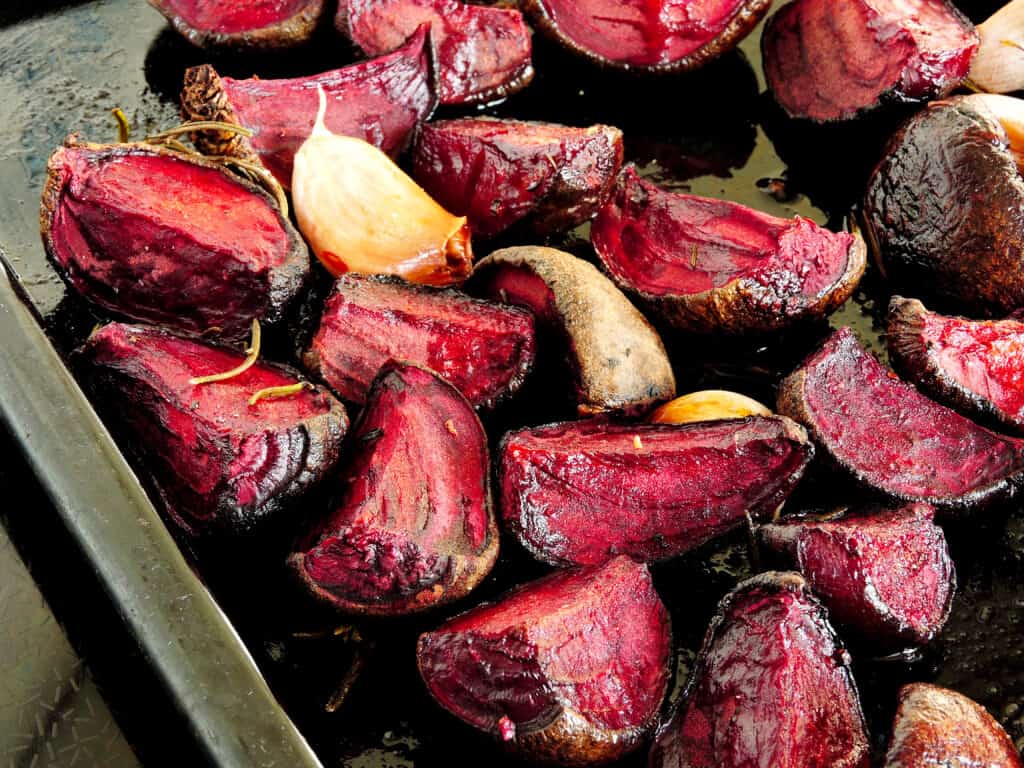
How to roast beets
Roast beets by wrapping them in foil after oiling the skin. Roast in a baking dish at 350-400°F (180-200°C) for 1-2 hours.
- Roast beets wrapped in foil.
- Coat the beets with butter or cooking oil and season before wrapping them in foil.
- Place in a baking dish at 350 to 400 degrees F (180-200ºC)
- Cook in the oven for 1 to 2 hours or until tender.
How to bake beets
Bake beets in a buttered or oiled baking dish—set the beets in a single layer. Add ¼ inch of water and cover the dish with a lid or aluminum foil. Bake at 350°F (180°C) until tender 1 to 1½ hours.
- Preheat the oven to 450 degrees F.
- Wash the beets without bruising or tearing the skin.
- Trim the top leaving about an inch of the stem in place. The leaves can be cooked separately.
- Wrap each beet in aluminum foil; leave the stem protruding from the foil.
- Bake beets in a dish with a tight-fitting lid and 4 to 5 tablespoons of water.
- Bake on the middle rack until tender, about 1½ to 2 hours.
- Baking beets will preserve their flavor and enhance their color.
How to simmer beets
- Simmer whole small, unpeeled beets in an uncovered container for 20 to 40 minutes or until fork-tender.
- Large beets may have to cook as long as 3 hours.
- Rub the beets gently under running water to peel them after cooking.
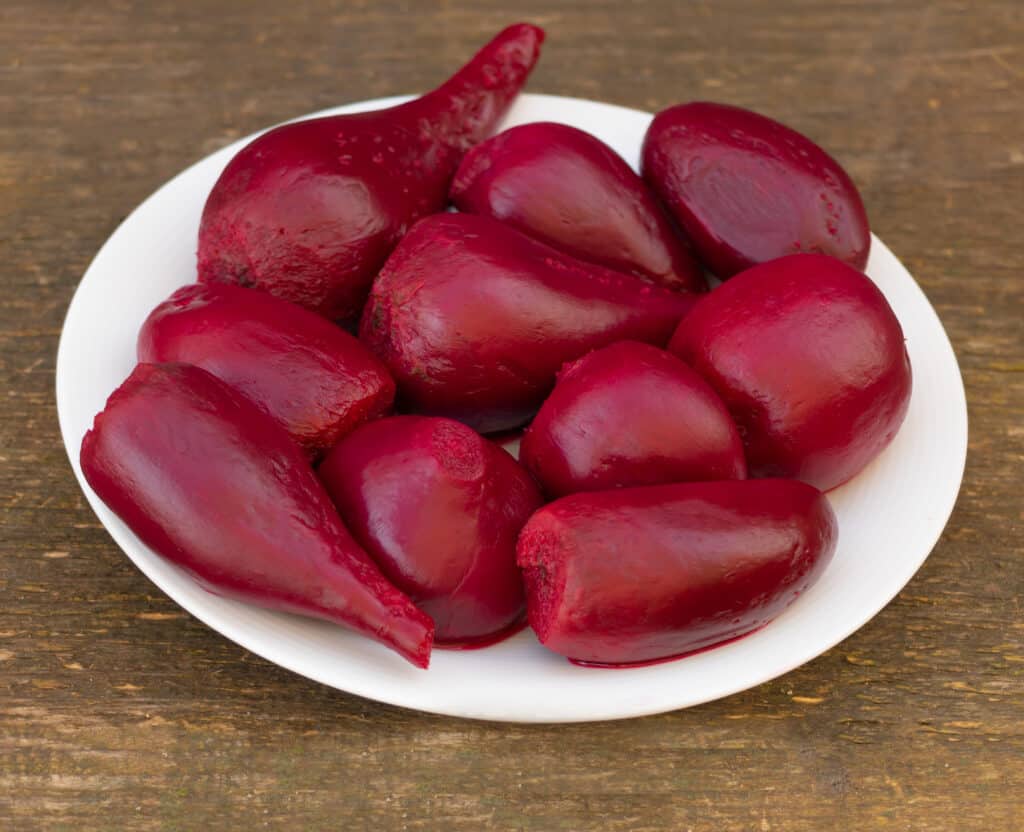
How to boil beets
Boil beets by first removing the tops, stems, and greens; then simmer 15-20 minutes or until tender; plunge them into cold water so that they can be handled; drain and rub off the skin with your fingers under cold running water. You can then slice the beets or serve them whole.
- Boil beets in a covered saucepan in water.
- Small beets will take 25 to 30 minutes; large beets will take 35 to 40 minutes.
- Add salt only at the end of cooking, otherwise, the beets will turn pale.
- Beets are done cooking when they are easily pierced with the end of a sharp knife.
- Drain and cool al little until you can peel them by slipping off the skin.
- Leave whole if small or slice or cut into thin strips.
- Serve hot with butter or cold in salads. Beets go well with slightly bitter greens such as endive.
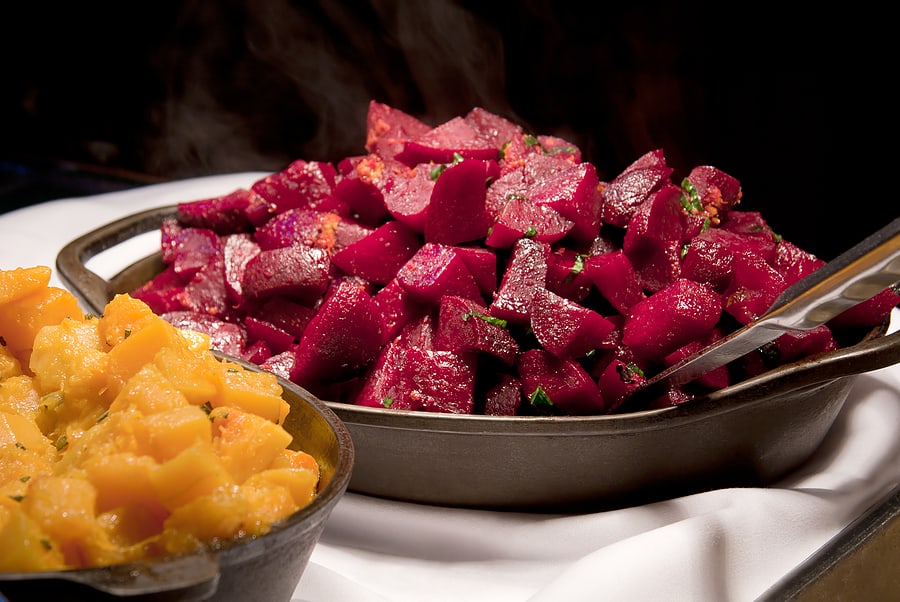
How to steam beets
Steam beets quickly; place beets in a vegetable steamer over boiling water for 30-45 minutes or until they are easily pierced with a thin knife. Steaming will minimize bleeding and concentrate flavor.
- Place a steamer basket in a saucepan. Add water to just below the bottom of the basket.
- Bring water to a boil.
- Add beets to the steamer basket. Cover and reduce heat.
- Steam beets until tender about 30 to 45 minutes.
- You can pierce a beet with a fork to check doneness, but this may cause the beet to bleed.
- Another way to know if beets are ready is to hold them under a thin stream of running water. If the peel detaches itself, the beet is done.
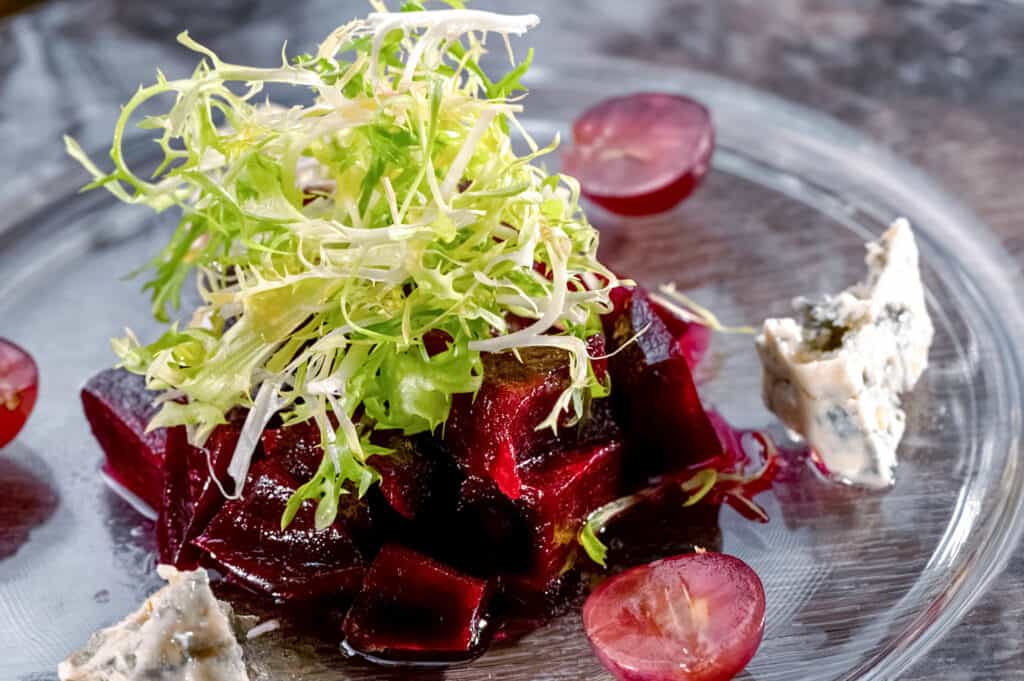
How to sauté beets
Sauté beets with butter and little lemon juice (acidic lemon juice will hold the color).
Sauté beets greens with garlic and olive oil and serve as a side dish.
How to microwave beets
Microwave 1 pound (.45 kg) trimmed beets in a microwaveable dish with ½ cup (120 ml) of water. Cover and cook until tender about 20 minutes.
How to prepare beet greens
Cook beet greens like spinach. Cut the greens off as soon as possible otherwise they will draw nutrients and moisture out of the root.
Wash the leaves and stems thoroughly in cold water. Drain. Cut into one-inch pieces. Cook without additional water in a well-covered pot for 5 minutes. Add 1/2 teaspoon salt to each cupful, 1 tablespoon butter, oil, and 2 tablespoons dry bread or cracker crumbs. Toss lightly. Serve hot.
Cooked beets serving suggestions
- Cook beets only until they just lose their rawness. Once beets have been cooked, you can peel them while still warm.
- Once tender, beets can be sliced or diced to use in salads, risotto, and vegetable side dishes.
- Serve beets warm with a dressing of butter, lemon juice, and seasoning, or dress them with orange juice topped with slivers of green onion or glazed with orange marmalade.
- Serve cooked beets warm or cold peeled, sliced, and served with oil and lemon or with vinaigrette. Top beets with plain or flavored butter or margarine, lemon juice, vinegar, vinaigrette dressing, sour cream, or plain yogurt.
- Season beets with salt, pepper, allspice, nutmeg, cinnamon, savory, bay leaf, anise, caraway, clove, dill, ginger, mustard, or thyme.
- Serve beets with meat, fish, grains, fruits, nuts, celeriac, fennel, or bitter greens.
- Beet greens and thinnings can be eaten raw in salads or mesclun. Beet greens can be cooked much like spinach.
Beets flavor partners
- Beets go well with basil, goat cheese, herring, orange, potatoes, slow-cooked beef or ham, sour cream, spinach, tarragon, vinegar, and yogurt.
- Cooked beets can be matched with strong flavors: biting (horseradish, chili, ginger, mustard greens), bitter (chicories, watercress), acid (balsamic or fruit vinegar, citrus fruits), spicy (Sichuan pepper, curry, caraway), salt (olives, caper, anchovies).
Beets nutrition
- Beets contain vitamins A and C and also potassium, calcium, phosphorus, iron, and protein. There are about 35 to 40 calories in ½ cup of beetroot.
- Beets can be eaten to relieve headaches and combat colds and anemia.
How to remove beet juice from hands
Beets contain betacyanin a pigment that causes their red color. When beets are bruised or cut they can release or “bleed” their red juice. Lemon juice can be used to remove beet juice stains from the hands.
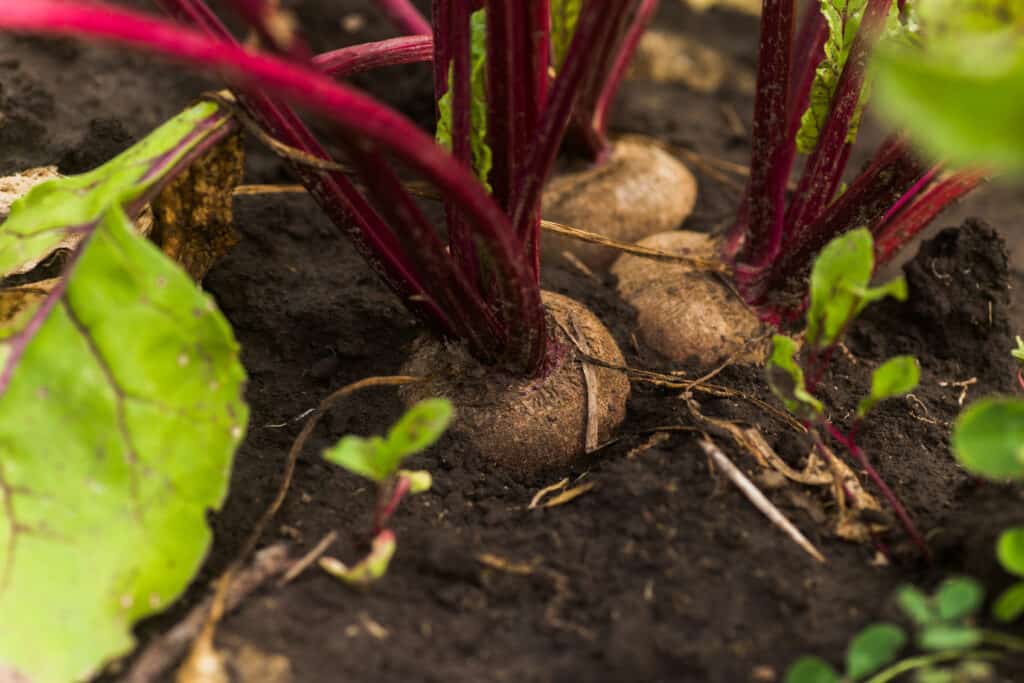
Get to know beets
- Beets—which also are called garden beets or beetroot—are a biennial vegetable grown as an annual. Their peak season is late spring through autumn. The first small “baby” beets will come to your farm market in late spring.
- Beets can be round or cylindrical in shape and from 2 to 10 inches (5-25 cm) in diameter. The most flavorful beetroots will be about 2 to 3 inches (5-7.5 cm) in diameter.
- The common garden beet is deep red-colored. The golden beet has an orangey skin, and the albino beet is white. The Chioggia (pronounced kee-oh-ja) beet is the traditional Italian beet. It is named for the Chioggia region in Italy and has candy cane concentric rings of red and white. The flesh of each of these corresponds in color to the skin.
- Beet leaves—which are edible–grow from the crown of the root on short stems to 15 inches (38 cm) high and 10 inches (25 cm) wide. Beet greens have a delicate flavor, not as strong as spinach.
- Beets are descended from a wild seashore plant called the sea beet. The beet originated in prehistoric times along the shores of Southern Europe or North Africa. Over thousands of years, it was cultivated and selected for its edible root.
- The Romans used beets mostly for their leaves, not roots. By the Middle Ages, beets were known as “Roman beets” in Northern Europe. By the sixteenth century, Northern the Germans and English began to use beets as a vegetable.
- The beet is a close relative of the Swiss chard.
The botanical name of beets is Beta vulgaris.
Beets Growing Hub
Start here: Ultimate Guide to Growing Beets from Seed to Harvest
1. Getting Started (Timing, Planting, Varieties)
- When to Plant Beets: Timing by Season and Region
- Beets Seed Starting Tips
- Thinning and Spacing Beets for Better Roots
- Beet Varieties for Small Spaces and Containers
- Best Beet Varieties for Sweet Flavor and Tender Texture
2. Growing & Care
- Best Companion Plants for Beets (And What to Avoid)
- How to Fertilize Beets for Root and Leaf Growth
- How Much Water Do Beets Need? A Watering Guide
- How to Grow Beets in Raised Beds and Containers
- Growing Beets in Hot Weather: Challenges and Solutions
- Succession Planting Beets for a Continuous Harvest
3. Problems & Troubleshooting
- Why Are My Beets Not Forming Roots? Common Growing Problems Solved
- Beets and Swiss Chard Growing Problems: Troubleshooting
4. Harvest, Storage & Kitchen Use
- How and When to Harvest Beets for Best Flavor
- How to Harvest and Store Beets
- Seven Ways to Cook and Serve Beets
Also of interest:
How to Harvest and Store Beets
Beets articles at Harvest to Table:
How to Harvest and Store Beets
Beets and Swiss Chard Growing Problems: Troubleshooting
Seven Ways to Cook and Serve Beets
Baby Beets, Baby Carrots, and Sugar Snap Peas Salad
Baby Beets: Steamed, Baked, Pickled
Related articles:
Best Herbs for Container Growing
Garden Planning Books at Amazon:
- Vegetable Garden Almanac & Planner
- Kitchen Garden Grower’s Guide Vegetable Encyclopedia
- Vegetable Garden Grower’s Guide
- Tomato Grower’s Answer Book
More kitchen tips:
Bring your harvest to the table. Kitchen prep tips and easy recipes for the vegetables you grow. Click below for vegetable prep and recipes you can use now.
- Almonds
- Apples
- Apricot
- Aprium
- Artichoke
- Arugula
- Asparagus
- Avocado
- Bamboo Shoots
- Banana
- Basil
- Beans, Dried
- Beans. Long
- Beans, Shell
- Beans, Snap
- Beets
- Bitter Melon
- Blackberry
- Bok Choy
- Broccoli
- Broccoli Raab
- Brussels Sprouts
- Cabbage
- Cardoon
- Carrots
- Cauliflower
- Celeriac
- Celery
- Chard
- Chayote Squash
- Cherimoya
- Cherries
- Chestnut
- Chickpea
- Chinese Cabbage
- Chives
- Cilantro
- Citron
- Clementine
- Collards
- Coriander
- Corn, Sweet
- Corn, Baby
- Corn Salad, Mache
- Cranberry
- Cress
- Cucumber
- Daikon
- Dandelion
- Dill
- Eggplant
- Endive, Belgian
- Endive and Escarole
- Fava Beans
- Fig
- Florence Fennel
- Garlic
- Ginger
- Grapefruit
- Grapes
- Guava
- Horseradish
- Jerusalem Artichoke
- Jicama
- Jujube
- Kale
- Kiwifruit
- Kohlrabi
- Kumquat
- Leeks
- Lemongrass
- Lemons
- Lettuce
- Lime
- Mache (Corn Salad)
- Mandarin Orange
- Mango
- Maple Syrup
- Marjoram
- Melons
- Michihili
- Mint
- Mizuna
- Mushrooms
- Mushrooms, Cremini
- Mustard Greens
- Napa Cabbage
- Nectarine
- Okra
- Olives
- Olive oil
- Onions
- Oranges
- Oregano
- Parsley
- Parsley Root
- Parsnips
- Passion Fruit
- Pawpaw
- Peaches
- Pears
- Peas, Garden Snap
- Peas, Snow
- Pei Tsai
- Peppers, Chili
- Peppers, Sweet
- Persimmon
- Pineapple
- Pineapple Guava
- Plantain
- Plums
- Pluots
- Pomegranate
- Potatoes
- Prickly Pear
- Pumpkin
- Quince
- Radicchio
- Radishes
- Raspberries
- Rosemary
- Rhubarb
- Rutabaga
- Sage
- Salsify
- Sauerkraut
- Savory
- Shallots
- Sorrel
- Spinach
- Squash, Summer
- Squash, Winter
- Strawberries
- Sunchokes
- Sunflower
- Sweet Potato
- Swiss Chard
- Tangerine
- Taro
- Tarragon
- Thyme
- Tomatillo
- Tomato
- Turnip
- Turnip Greens
- Yams


